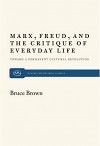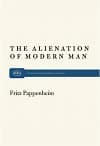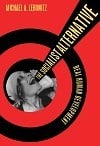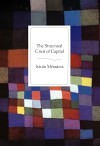Marxism
I wrote some time ago that “Harry Magdoff is a great teacher and an indomitable combatant. His contributions to socialist theory-on imperialism and monopolistic developments, as well as on the vital role of planning for any viable society of the future—are of a truly lasting importance.” | more…
Harry Magdoff died on New Year’s Day 2006 at the age of ninety-two. He will be remembered in the hearts of those who knew him, those who were profoundly influenced when they heard him speak, and those who have read Monthly Review and his great books on imperialism, which helped mature the thinking of the generation of leftists who came of age during the Vietnam War. It is the warmth of his person, the clarity and incisiveness of his thinking, and his profound vision of the absolute necessity of socialism that characterize his historic contributions and set him apart as one of a handful of great Marxist thinkers of the last century. The breadth of Harry’s knowledge—his grasp of world history, Marxist literature, and broader literatures—was extraordinary. He was as content, for example, to discuss the nature of calculus with a college student as Shakespeare with a Shakespeare scholar, all with that wonderful enthusiasm and energy he always brought to conversations | more…
Marxists may be expected to have few disagreements about the meaning of work in the past and present. The same cannot be said, however, about work in the future. Since I will be talking about work under socialism and communism as well as in history, what I am presenting here is a Marxist perspective, not the Marxist perspective | more…
Even when Harry Magdoff was writing articles less often in his final years, he continued to compose letters that displayed his keen interest in world developments, the evolution of his thinking, and his deep personal commitments. Reprinted here are four letters he wrote in the opening years of the new millennium. The first was written while he still lived in New York. The last three were written in Vermont where Harry had moved in June 2002 to live with his son Fred and his daughter-in-law Amy Demarest. The fragilities of old age had largely confined him by then to home. But his thinking still knew no bounds | more…

The theory and practice of revolutionary social transformation, Bruce Brown argues, cannot rest content with the exclusive emphasis of traditional Marxism on world-historic processes and the struggle of the working classes for their collective emancipation. He views the experience both of the backsliding of revolution in the Soviet Union and Eastern Europe, and of the manipulative integration of the population of the West into consumer capitalism, as seen at the turning point years of the early 1970s. Brown argues that Marxism needs to rediscover the specifically subjective, psychological dimensions of the revolutionary process in their relation to the objective patterns in history. | more…

This intriguing work deals with the plight of the alienated individual, estranged from humanity and the surrounding world. It examines such questions as: Why do writers like Kafka, Thomas Wolfe, Rilke, and the existential philosophers, who portray man as a stranger in the world, have such a strong appeal? Is estrangement limited to individual cases or has it become a universal fate? Is alienation a consequence of the triumph of the machine? Is it caused by the increasing complication of our political life and by the growing separation between leaders and masses? Is it characteristic of the human condition, or is it a specific development of modern society? Should mankind resign itself to alienation, or can it be overcome, conquered? | more…
Johann Wolfgang von Goethe’s famous remark, cited by Karl Marx, among others, was surely a part of the sensibility that motivated Harry Magdoff’s life and work. Harry’s writing and scholarship were important achievements and distinguished contributions to the socialist project, but they were grounded in a profound understanding of life, history, and the human condition. The centrality of both theory and life were much in evidence on a clear brisk weekend in early May, when many of the MR extended family—readers, writers, staff, and, of course, the Magdoff family—gathered in New York, on Saturday for a roundtable on Harry’s contributions and the future of MR, and on Sunday for a meeting celebrating, as it turned out, the lives of both Harry and his beloved wife Beadie | more…
Forty years ago this summer, a group of women and men came together to form the National Organization for Women (NOW). NOW’s mission was to fight for gender equality through education and litigation. While not the only group fighting for women’s rights, it quickly became one of the best known and largest. Today, NOW has over a half million members and over 500 chapters throughout the country. NOW was founded at a time when women were entering the paid labor force in increasing numbers. NOW had its critics: many said it ignored race and class, others said it was too focused on liberal feminist legal strategies like passing the Equal Rights Amendment. Numerous other organizations representing working-class women and women of color developed, including the Coalition of Labor Union Women, 9to5, the National Organization of Working Women, and the Combahee River Collective. Together with a myriad of other groups these organizations helped build the women’s movement of the 1960s and 1970s | more…
When my father, Paul Sweezy, died at the end of February 2004, John Kenneth Galbraith, or Ken, as he preferred to be called, in- vited my mother to gather her children and come talk. He told us that the New York Times and other newspapers had called to in- terview him for Paul ‘s obituary but he had declined. He felt bad about doing so, but he said, their questions focused on political differences and that is not what he wanted to say about Paul | more…

“A good society,” Michael Lebowitz tells us, “is one that permits the full development of human potential.” In this slim, lucid, and insightful book, he argues persuasively that such a society is possible. That capitalism fails his definition of a good society is evident from even a cursory examination of its main features. What comes first in capitalism is not human development but privately accumulated profits by a tiny minority of the population. When there is a conflict between profits and human development, profits take precedence. Just ask the unemployed, those toiling at dead-end jobs, the sick and infirm, the poor, and the imprisoned. | more…

Antonio Gramsci is a giant of Marxian thought and one of the world’s greatest cultural critics. Antonio A. Santucci is perhaps the world’s preeminent Gramsci scholar. Monthly Review Press is proud to publish, for the first time in English, Santucci’s masterful intellectual biography of the great Sardinian scholar and revolutionary. | more…

In this collection of trenchant essays and interviews, István Mészáros, the world’s preeminent Marxist philosopher and winner of the Libertador Award for Critical Thought (the Bolivar Prize) for 2008, lays bare the exploitative structure of modern capitalism. He argues with great power that the world’s economies are on a social and ecological precipice, and unless decisive radical action is taken soon to totally transform our economic system—from one based upon the blind pursuit of profit to one controlled by the workers themselves to not just satisfy our basic needs but to help each of us to develop our full potential as human beings—we will find ourselves thrust headfirst into barbarism and environmental catastrophe. | more…




